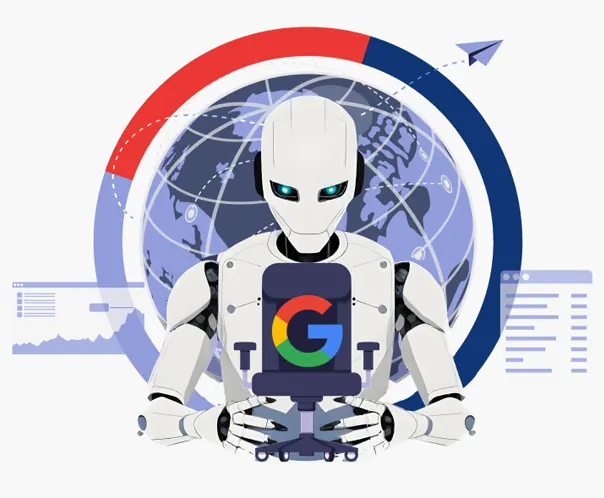The process of content creation includes researching, brainstorming ideas, and promoting to an audience. It serves as the basis for modern digital marketing and has experienced significant growth. Examples of content creation activities are:
- Blogging
Writingarticles- Video Content
- Photography
- Social media content
- And distribution of digital media
Millions of content creators are constantly seeking to produce aesthetic and engaging pieces of content every day to drive attention. Whether it’s articles, YouTube videos, FB posts, Instagram posts, or TikTok reels, the demand for valuable and engaging content is higher than ever before.
However, writing content in confident that is worthy can be quite challenging.
Creating long-form content with engaging narratives or capturing attention on various social media channels is not always a walk in the park.
It requires creativity, dedication, and a deep understanding of the target audience. If content creators find themselves running out of ideas, it’s essential to remember the wise words of renowned writer Maria Popova an American-based essayist: “Why waste a sentence saying nothing?”
The key is to keep it simple, make it memorable, make it inviting to look at and make it fun to read.
Moreover, Finding content ideas and inspiration can sometimes feel like a daunting task, but as Pablo Picasso once said, “Inspiration exists, but it has to find you working.” Content creators need to be open to learning from their daily lives, gaining knowledge anytime and anywhere, and seeking inspiration from anyone who inspires them.
Content creators can cultivate their creative abilities and produce meaningful content through continuous learning and hard work.
Content creators are all set to produce content with millions of content produced every day.
Learn as much as possible from those who inspire you in your daily life – content creators might work on that.
In addition to hard work and dedication, content creators can also leverage AI tools to enhance their content creation process.
These AI tools can help generate new ideas, overcome writer’s block, and streamline the content creation workflow.
Popular AI content generation tools like ChatGPT and Jasper have gained significant attention in the industry for their ability to speed up content creation.
However, content creators should use these AI tools to generate quick content rather than relying on themselves completely. AI-generated content still requires human input and editing to ensure quality and maintain a humanistic voice.
You may have heard about AI writing tools that promise to simplify your life, producing blog posts at lightning speed!
But wait – does Google put down your hard-earned SERP rankings? Are your website at risk? Does your content created by AI be penalized by Google?
But in Google, it’s penalized? Let’s check it out.
There has been speculation about whether using AI writing tools can have an impact on search rankings and whether Google might penalize content created by artificial intelligence.
Currently, search engines evaluate content based on its quality, relevance, and user experience, rather than on how it was created.
As long as AI-generated content meets these criteria and provides value to users, there should be no reason for concern.
NOTE: “Code as Policies (CaP) is a framework developed by Google AI that utilizes language models to generate programs executed on physical systems.
PaLM, among the latest language models, can reason intricately and has been trained on millions of lines of code.”
Can Google Penalize AI-generated Content after Detecting?
Does Google have its robot to detect AI-generated content?
Different techniques are used to detect and flag machine-generated content, such as NLP algorithms that analyze the text for patterns and syntax commonly found in AI-generated writing.
So the answer might be yes as of now, Google can detect AI-generated content.
Should there be any concern?
Let’s figure out.
What is the impact of Google’s recent update on Reader-centric content and how does it affect search quality?
Let’s briefly examine Google’s most recent algorithm update – the reader-centric content update – before answering whether AI-generated content will be penalized or not.
This update pursues quality, reader-digestive content:
- Created content for targeted readers/niches.
- Establishing subject expertise.
- Keep satisfying search intent or answers to search queries.
- Publish content on a high DA/PA site
- Satisfy Google’ E-E-A-T guidelines.
In short, Google will encourage reader-friendly content.
What relevance does AI-generated content have in this context?
Very significantly keep in mind!
Google prioritizes content quality over creation methods (AI-generated content). Recent Google algorithm updates taught us to put content in spam if low-quality content is published.
So, it’s evident to us that AI-generated content is not a spam or red flag in SERPs.
Did you know that the latest content update wasn’t a response to AI content, despite what most people believe? Discovering the facts and providing information on the search intent behind popular misconceptions is always interesting.
If content quality is the issue, the C.R.A.F.T strategy must be followed!
When it comes to content, one thing is clear: quality is considerable.
Google recognizes the importance of delivering valuable and reliable information to its users.
However, AI writing tools and generating AI-driven content that meets high-quality standards can be challenging. While some tools may produce decent content with the right prompt engineering, settling for just “decent” won’t cut it, particularly in highly competitive niches.
That’s where the C.R.A.F.T. approach comes in.
- C: Cut fluffy content into your writing.
- R: Review wrings after editing to optimize content structure properly.
- A: Work on infographics and videos to draw the values of your writing.
- U: Fact-checking by updating content with present data keeps more value to your content.
- T: Build Trust by adding real-world story, examples, convincing tone, and valid data-supported links.
C.R.A.F.T worked as essential elements for the foundation of quality content writing and ensured that your content shines in the sea of information available on the internet.
Google’s Rewarding Quality content, Following principles known as E-E-A-T regardless of how it’s produced!
The entire landscape of the search engine, finding accurate and reliable information, can often feel like searching for a needle in a haystack. But worry not, for Google has been on a mission to reward high-quality content, regardless of how content is produced.
Google’s logarithm focus on quality has proven to be a guiding light in delivering valuable search results to users worldwide.
Google’s ranking systems operate on a set of principles known as E-E-A-T: expertise, experience, authoritativeness, and trustworthiness.
These matrices serve as a blueprint for evaluating content and ensuring that users are presented with reliable information from credible sources. By prioritizing these attributes, Google aims to elevate the quality of content and uplift creators who demonstrate expertise in their respective fields.
Around ten years ago, there was a surge in mass-produced, human-generated content that raised eyebrows among internet users. Understandably, concerns arose regarding the overwhelming amount of information lacking substance and reliability.
However, Google did not take a heavy-handed approach by imposing a ban on all human-generated content. Instead, they sought to improve their systems to reward quality content, emphasizing the intrinsic worth of the information rather than its source.
From its inception, Google has recognized the importance of rewarding high-quality content. This commitment remains deeply ingrained in their philosophy, as evidenced by their steadfast dedication to surfacing reliable information through their ranking systems.
These systems constantly evolve to keep up with the ever-changing digital landscape and to combat misinformation.
Google’s goal is to empower users by presenting them with content that is not only valuable but also created with their needs in mind.
To further enhance the user experience, Google introduced the helpful content system in 2022. This system was implemented to ensure that search results prioritize content created primarily for people rather than solely to secure higher search rankings. The focus is on content that resonates with users, answers their queries, and provides valuable insights and solutions.
Google’s unwavering commitment to rewarding high-quality content has played a pivotal role in shaping the internet landscape. By focusing on attributes like expertise, experience, authoritativeness, and trustworthiness.
Google promotes an environment that encourages content creators to strive for excellence. Through its ranking systems and dedication to delivering reliable information, Google continues to redefine the search experience, an engaging and informative quality content to the forefront of the digital realm only be priced.
So, GOOGLE NOW rewards bloggers or content creators who entail expertise, experience, authority, and trustworthiness in content. Google ensures that the internet remains a platform where knowledge flourishes, and reliable sources are recognized.
Insights from Google’s Webmaster Trends Analyst, John Mueller, on AI-Written Content!
John Mueller, the prominent Google spokesperson, and Webmaster Trends Analyst, recently shed light on Google’s stance towards AI-written content on websites.
When asked about how Google responds to such AI-generated content, Mueller was brief in his response, stating, “Yes, it’s spam.”
This straightforward statement underscores Google’s view on the quality and authenticity of AI-generated content.
A follow-up question asked about Google’s ability to distinguish between AI-generated content and human-written content. (I.e., is it accessible for Google to identify AI-generated content and penalize it?)….
Mueller’s response offered insight into Google’s can’t differentiate between AI-generated and human-generated content.
He specifically mentioned that Google does not have such a tool – so can’t claim that–at least for now.
What does this revelation mean for content creators who use AI tools to improve their content creation process? The implications are clear: while Google may not be equipped to identify AI-generated content with absolute certainty, the use of such tools raises concerns about the overall quality and authenticity of the content presented.
Much-needed conclusion awaits:
Is Google interested in promoting good content through rewards? What is the outcome of the AI-generated content? Is AI-written content subject to penalties from Google? Might SEO ranking be hampered by AI-generated content?
The answer is no; as long as you produce top-quality content that adheres to their search quality rater guidelines, satisfying searcher intent, no need to worry about where are the source of content is – it should be unique, trustworthy, putting authoritativeness, and answering searcher’s queries.
After successfully considering Google AI Guidelines, following E.E.A.T guidelines is the best solution for generating valued content.
As an SEO Agency, Maven Technology believes that following E.E.A.T guidelines is the best solution for generating valued content.




